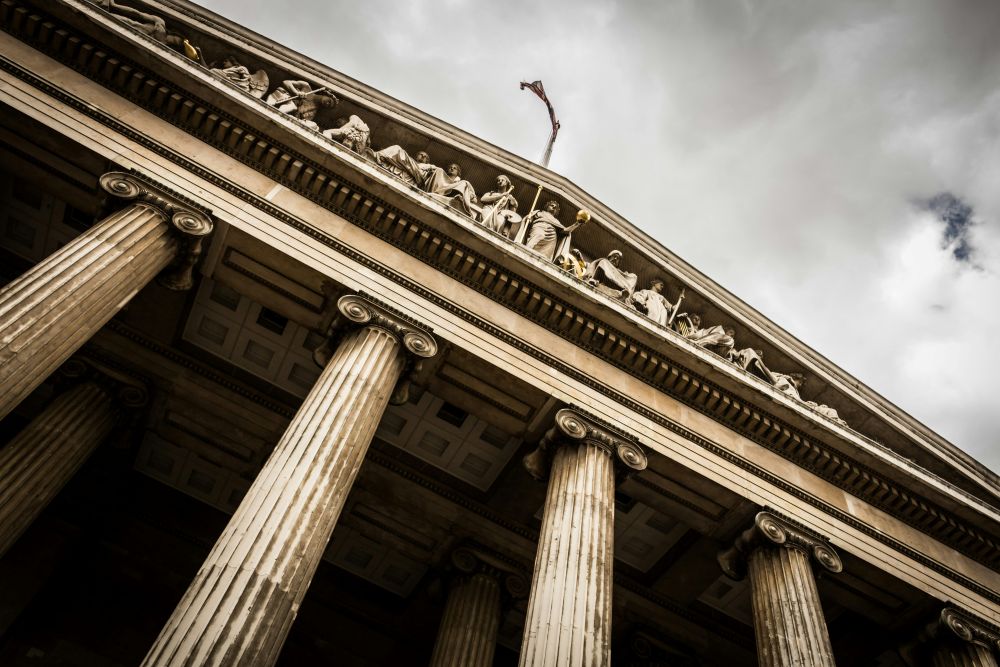
As the U.S. Supreme Court prepares to recess before the start of its new term, a slate of high-stakes cases expected to be released in June is poised to reshape the legal landscape in areas including LGBTQIA+ rights, immigration, and government accountability. Several of these cases are a direct result of policies and executive actions initiated during Donald Trump’s first presidential term, which tested the limits of executive power and reshaped the federal judiciary.
Now, years later, the Supreme Court—transformed by three Trump-appointed justices—is being asked to weigh in on the constitutional boundaries of presidential overreach, government accountability, and individual rights. From challenges to inclusive education and gender-affirming care bans to fights over presidential authority and First Amendment protections online, these five cases stand to influence millions of lives. They could also redefine the boundaries of constitutional rights in schools, public policy, and the workplace. Together, these cases serve as a litmus test for how far the judicial branch can go to check executive power, protect civil liberties, and interpret long-standing constitutional protections in a politically polarized era. Here’s a closer look at the key cases to watch.
1. Mahmoud v. Taylor
Oral arguments held April 22, 2025
Issues: LGBTQIA+ rights and inclusive education, parental religious freedom, public education
At the heart of Mahmoud v. Taylor is whether public schools violate parents’ religious rights by offering age-appropriate LGBTQIA+-inclusive books without allowing opt-outs. The case originated in Montgomery County, Maryland, and could redefine the limits of religious objections in public school curricula.
The case centers on LGBTQIA+-inclusive children’s books that were introduced into the Montgomery County School District’s curriculum. The district initially allowed parents to opt their children out of exposure to these books, but revoked the policy in March 2023, citing concern about student absenteeism. The plaintiffs, a group of parents including Tamer Mahmoud, are suing the district, arguing that its refusal to allow their children to opt out of lessons or materials featuring LGBTQIA+ themes infringes upon their First Amendment rights to free exercise of religion.
“Schools should be safe and welcoming environments for all students, yet we know LGBTQ+ students are disproportionately likely to experience bullying, harassment, and discrimination in school,” Jackie Perlow, supervising attorney of the Women’s Law Project, said in a press release.
The Women’s Law Project, Community Justice Project, and Pennsylvania-based organizations including Lebo Pride, Education Law Center, and Pennsylvania Youth Congress filed a friend-of-the court brief in support of the school district.
“There is robust research out there that conclusively proves that having inclusive curricula protects students, it deters bullying, it lessens stigma, and it makes the educational environment more successful for all students,” Susan Frietsche, executive director of the Women’s Law Project, said in an interview.
Frietsche said that public schools cannot tailor curricula to individual parental preferences, which would be unmanageable and detrimental to education.
“No one is harmed by the book about a puppy getting lost at a parade, but people are harmed by a group of students standing up and opting out of a class because there might be a mention of LGBTQ people in the curriculum material,” said Frietsche. “That is devastating, and it’s just piling stigma onto these kids who are already hearing so many messages of hate coming not just from extremists on the street corner, but also public officials.”
2. Martin v. United States
Oral arguments held April 29, 2025
Issues: Government accountability, federal immunity
In Martin v. United Statesthe Supreme Court is considering whether individuals can hold the federal government accountable under the Federal Tort Claims Act (FTCA) after suffering harm from a mistaken FBI raid. The case examines fundamental questions about the limits of federal immunity and the government’s responsibility when law enforcement actions go wrong. The ruling could reshape the standards for when individuals can sue the federal government for misconduct.
The case stems from a botched FBI raid in which Curtrina Martin, a private citizen, had his home wrongly targeted. According to court documents, FBI agents forcibly entered Martin’s home in a predawn operation based on flawed intelligence, detaining him and his family at gunpoint, damaging property, and leaving lasting psychological harm, only to later discover they had raided the wrong address.
Martin sued the federal government under the FTCA, which allows private individuals to sue the U.S. for certain wrongful acts committed by federal employees, alleging negligence and violation of his constitutional rights.
The federal government argues that the agents should be shielded by sovereign immunity, a legal doctrine that protects the U.S. government from being sued without its consent, unless clearly waived.
A ruling in favor of Martin could significantly broaden the circumstances under which individuals can sue the federal government, particularly in cases involving law enforcement errors. A ruling in favor of the government could limit public recourse in cases of federal misconduct, reinforcing the barrier of sovereign immunity, even when individuals suffer serious harm through no fault of their own.
Additionally, this case could reshape how courts evaluate claims of government wrongdoing, especially in an era of heightened concern over police accountability and civil rights violations. It may set a precedent for how much discretion federal agents are allowed and how citizens can seek redress when that discretion goes awry.
3. Trump v. CASA, Inc.
Arguments held May 15, 2025
Issues: Birthright citizenship, immigration, presidential authority, constitutional equality, executive overreach
In a major constitutional challenge, immigrant advocacy organization CASA and others are taking on the Trump-era executive order attempting to eliminate birthright citizenship. The case could overturn more than a century of precedent rooted in the 14th Amendment.
On the day of oral arguments, CASA, FWD.us, and allies rallied on the Supreme Court steps.
“Citizenship is not a state-by-state privilege. It is a national guarantee,” the coalition stated in a press release. “A decision to weaken these protections would create a chaotic, fragmented citizenship system, where a child born in one state could be a citizen, and in another, stateless.”
Backed by community organizations, impacted immigrants, and legal scholars, CASA v. Trump will be a defining case for immigration rights and constitutional interpretation in 2025.
4. U.S. v. Skrmetti
Arguments held Dec. 4, 2024
Issue: Ban on gender-affirming care for minors in Tennessee
A constitutional challenge to Tennessee’s law barring gender-affirming medical care for minors could set the tone for trans rights in the U.S. going forward. The case will determine what level of scrutiny the courts use to look at rights for trans people and in general, sex-based discrimination and sex-based rights.
“We know that folks, trans folks of all backgrounds and races are under attack by extremist policies, politicians, and judges who are unelected, and this is just going to be another attack on youth,” said Heron Greenesmith, the deputy director of policy at Transgender Law Center. “Folks will be impacted specifically by having less access to lifesaving care.”
According to Greenesmith, the case has the potential for reducing the ability to protect against sex-based discrimination, and for trans youth, it has the potential to allow states to ban certain kinds of health care for trans youth. The case could continue the court’s criminalization of bodily autonomy as seen in the reversal of Roe v. Wade in 2022.
Regardless of the decision, Greenesmith said “the court cannot legislate trans joy, trans resistance, trans care for one another.”
“Before states were covering specific gender-affirming care for some populations, trans folks always protected one another and provided health care for one another,” Greenesmith said. “So while this case is absolutely going to have a potential impact on how some trans youth can access some care, the truth is, we have always been here and will always be here, and we protect one another.”
5. Free Speech Coalition v. Paxton
Oral arguments: Jan. 15, 2025
Issues: First Amendment, online anonymity, age verification laws
The Supreme Court is weighing whether Texas’s HB 1181, which mandates age verification for adult sites, violates the First Amendment. Plaintiffs, including the American Civil Liberties Union (ACLU), argue that the law burdens adult access to lawful sexual content and opens the door to widespread internet censorship.
“Efforts to childproof the internet not only hurt everyone’s ability to access information, but often give the government far too much leeway to go after speech it doesn’t like — all while failing to actually protect children,” Vera Eidelman, senior staff attorney with the ACLU Speech, Privacy, and Technology Project, said in a press release. “Pornography is historically the canary in the coal mine when it comes to censorship. Allowing the government to restrict access to sexual content will inevitably lead to more censorship and a more restricted internet for everyone.”
The law applies to any site in which one-third or more of its content is deemed “harmful to minors,” sweeping in porn sites, R-rated films, and even some sexual health resources. As similar laws spread to nearly 20 statesthis case could set the standard for how governments regulate online expression in the name of child safety.
“We can protect children online without censoring the internet for adults,” said Alison Boden, the executive director of the Free Speech Coalition, the trade association for the adult industry. “There are smarter, more effective solutions to keeping kids from seeing adult materials that don’t violate the First Amendment right of consumers to go online anonymously.”
Editorial Team:
Sahar Fatima, Lead Editor
Carolyn Copeland, Top Editor
Rashmee Kumar, Copy Editor



